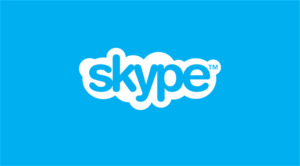Microsoft is Officially Shutting Down Skype: End of an Era
In a surprising yet somewhat expected move, Microsoft has officially announced the shutdown of Skype, the iconic messaging and video calling platform that once ruled the online communication world.
After nearly two decades of connecting people across the globe, Skype will finally say goodbye, marking the end of an era in digital communication history.

The Rise and Fall of Skype
From Revolutionary to Obsolete
Skype first launched in 2003, revolutionizing the way people communicated online. Long before Zoom, WhatsApp, or Teams, Skype made video calls mainstream, allowing people to see and talk to each other no matter where they were. It wasn’t just a platform — it was a global phenomenon.
However, over time, Skype failed to keep up with modern communication trends, facing stiff competition from newer platforms like WhatsApp, Zoom, Google Meet, and Microsoft Teams itself. Users began to complain about poor performance, confusing updates, and the lack of seamless mobile integration.
Microsoft’s Role in Skype’s Decline
Microsoft acquired Skype in 2011 for $8.5 billion, with high hopes of integrating the service into its broader ecosystem. However, instead of evolving Skype into a modern, user-friendly app, Microsoft’s frequent redesigns and focus shift towards Teams slowly pushed Skype into irrelevance.
When the COVID-19 pandemic hit in 2020, video calling apps became essential — but instead of Skype taking center stage, it was Zoom and Teams that dominated the market. Despite its head start, Skype lost its identity somewhere between being a personal communication tool and a business collaboration platform.
When is Skype Shutting Down?
According to Microsoft’s latest announcement, Skype will officially shut down by May 5, 2025. Users are being encouraged to migrate to Microsoft Teams, which has absorbed many of Skype’s core features and offers better integration with Microsoft 365 services.
What Happens to Existing Skype Accounts?
If you’re still using Skype (yes, some people still do!), you might be wondering what will happen to your chats, contacts, and data. Microsoft has assured that:
- Existing Skype accounts can be migrated to Microsoft Teams.
- Users will have time to export their chat history.
- Microsoft will release tools to make the transition smoother.
However, some legacy features might not make it to Teams, especially older integrations and unique Skype-only functionalities.
Why is Microsoft Shutting Down Skype?
The decision to kill Skype didn’t happen overnight. There are several key reasons why Microsoft is pulling the plug:
- Declining User Base – Most users have already moved to alternatives like WhatsApp, Zoom, and Teams.
- Internal Competition – Microsoft Teams, especially after COVID-19, became the company’s primary focus for communication and collaboration.
- Fragmented Experience – Skype’s multiple redesigns over the years made it confusing and inconsistent, alienating long-time users.
- Redundancy – Maintaining both Skype and Teams was simply inefficient, and Teams offers a more modern and feature-rich platform.
End of a Nostalgic Era
For many, Skype isn’t just a platform — it’s a piece of digital nostalgia. It was where long-distance relationships thrived, job interviews were held, and friendships grew across continents. The familiar ringtone and the iconic blue interface became part of our digital culture.
As Skype bids farewell, it’s worth remembering how it paved the way for modern communication tools. Even though it couldn’t survive the fierce competition, its legacy lives on in every video call we make today.
What Should Users Do Next?
If you’re a regular Skype user (or still have an account lying around), here’s what you should do:
- Backup important conversations using Microsoft’s export tools.
- Explore alternatives like Microsoft Teams, Zoom, or Google Meet.
- Familiarize yourself with Teams, especially if you already use other Microsoft services.
Final Thoughts: A Necessary Goodbye?
Microsoft’s decision to shut down Skype may feel bittersweet, but in the fast-paced world of technology, evolution is inevitable. As communication becomes more integrated, seamless, and AI-driven, platforms that fail to innovate ultimately fade away.
Skype may be gone soon, but its impact will never be forgotten.




